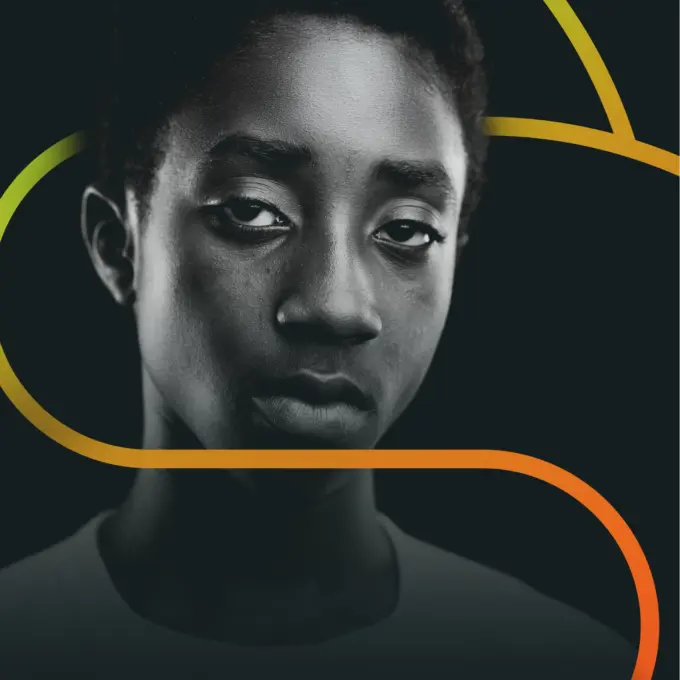
How We Support Parents at Safer London
Supporting parents whose children have experienced harm and trauma due to violence and exploitation is complex work.
At Safer London, our Families Team walk alongside parents and carers during some of the most challenging moments in their lives. Our Caseworkers offer a listening ear, practical support, and a safe space without judgement.
In this blog, we speak with our Families Caseworker, Hannah, about what a typical day looks like, the specific challenges parents face, and the small but powerful steps that can help parents and carers find hope and stability.
Can you tell us about your role and what a typical day looks like for you?
I work with up to 10 parents at a time, each with their own unique and complex situations. Once I’m working with them, I usually become their first point of contact in moments of crisis.
There’s no such thing as a ‘typical day’. Referrals might come in because there’s risk of their child being exploited, but often what I uncover is that their other children need support too. My role can involve advocating for them in professional meetings, providing a space for them to talk and reflect, and offering therapeutic-style support.
Many parents have lost confidence because of what their children have been through, whether that’s exploitation, difficulties at school, or major changes at home. They carry a heavy emotional load, and when they find a service like Safer London that supports them, they often hold onto it quite tightly. That’s why it’s important that I offer empathy while also setting healthy boundaries.
Every parent, like every day, is different. What works for one family might not work for another. Supporting parents can actually be more complex than working with young Londoners, as you’re working with adults who already have firmly established views and life experiences. They’re from a different generation with different perspectives, so the approach has to be flexible, respectful, and tailored to each individual.
What are some of the biggest challenges families face when a young Londoner is being exploited or involved in violence?
Parents are often juggling so much - work, childcare, school calls, social workers, endless meetings - all while trying to safeguard their child. The constant worry for their child’s safety can be overwhelming, and even when they know what needs to be done, it can feel impossible to focus because so much is unknown.
A big challenge is not fully understanding what’s happening to their child. Sometimes situations escalate quickly, from nothing to crisis in what feels like an instant. Other times, risks build slowly over months, but parents may not notice the changes, especially if they’re happening online or if they seem like typical teenage behaviour. By the time professionals get involved, the situation can feel like it’s spiralled out of control.
Statutory services often have high expectations for parents, but those parents are already battling daily anxiety and uncertainty. Meetings can sometimes feel procedural - an update is given, but nothing changes - which can leave parents feeling hopeless.
There’s also stigma to contend with, especially if a child has been excluded from school. Parents may compare themselves to others, which can chip away at their confidence and self-esteem. On top of that, there are worries about money, housing, and the future, both their child’s and their own. Many carry a heavy sense of self-blame, even though the biggest influences on their child’s behaviour often come from peers and the wider community.
Hannah, Families Team Caseworker
I’m honest that I don’t have all the answers, but I can listen, and that’s often what they value most.
How do you build trust with families who might be feeling overwhelmed or isolated?
Consistency is key. From the very start, especially when parents arrive in crisis with complex needs, it’s important to offer a high level of support. Over time, that support can be gently scaled back, empowering them to manage things themselves and building their confidence.
A big part of my role is providing a safe, consistent space where they feel heard and understood. I’m honest that I don’t have all the answers, but I can listen, and that’s often what they value most. Friends and family can sometimes bring judgement or strong opinions, but at Safer London we remain neutral. We make suggestions, but never tell them what to do, so they can make their own informed choices.
Is there a particular moment or story that's stayed with you from your time in the role?
One case that really stays with me is a mother living in a one-bedroom flat with her son and another family member. She had accessibility needs, which meant leaving the house was a huge challenge - she could only manage it once a day. Her son was at very high risk of exploitation, having already been kidnapped, and it was clear she needed to get him out of London for his safety.
I referred her to New Horizon Youth Centre*, and they were able to relocate the family. The first six weeks were tough because her son kept being drawn back to London, but over time, things changed. Now he’s completed his GCSEs, and life is much more stable.
With his mum, we had many conversations about exploitation, which was difficult for her to fully take in, but she knew what needed to be done and allowed me to support her through it. Without our strong connections with partners like New Horizon Youth Centre, making that move happen would have been much harder.
How do you measure or recognise progress with a family?
Measuring our work with parents is very different from how we work with young Londoners. We can’t always arrive with a structured session plan. Often, they just need space to talk and share what’s on their mind. The work is ongoing and doesn’t always fit neatly into session-by-session tracking.
For me, progress often comes through weekly reflections with them, looking back together and asking, “What’s changed since then?” I use a solution-focused approach rather than sticking rigidly to a plan, because if there’s one thing I’ve learned, it’s that nothing ever goes exactly as planned. Parents are constantly facing unexpected challenges.
Hannah, Families Team Caseworker
It’s also about helping them recognise their own progress, drawing out the positives, and rebuilding their confidence so they can see just how far they’ve come.
What advice would you give to a parent or carer who suspects their child is being groomed or exploited?
First and foremost - you’re not alone. Safeguarding and building a network with professionals is crucial. Be consistent in your support for your child and set clear boundaries. Sudden changes in your emotional response, like reacting in anger or panic, can cause your child to withdraw or become defensive. Remaining calm and neutral creates a safe, steady space, even when the situation feels frightening.
It’s also about patience and persistence. Change takes time, and often it’s a process of trial and error before things start to improve.
Are there any changes you'd like to see in how society, schools, or services respond to families in crisis?
Many parents have little understanding of what exploitation is, how it works, or whether their child might be experiencing it. While some boroughs offer excellent support, others leave parents isolated and without the knowledge they need.
I’d love to see more spaces where parents and carers can come together, a stronger community and a louder parental voice to face these challenges collectively. Better access to information and resources on exploitation and violence would help parents feel more confident in supporting their children.
Schools also have a big role to play. I believe many secondary school teachers would welcome the opportunity to receive this kind of training and guidance so they can better support both young people and their families.
*Our families works is part of VESS London, a service delivered with St Gile's Trust, New Horizon Youth Centre and Anna Freud.

Young Londoner's voices are at the heart of what we do. Continue reading our blogs to find out more about how we are creating a city that works for young Londoners.
Continue reading our blog
Back to blog